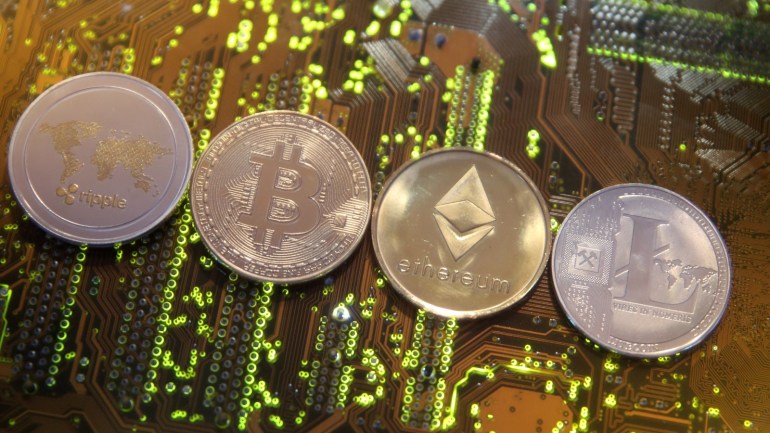Despite talk about the decline of the United States' global standing, the dollar remained in control of international trade during the Corona crisis, and it remains the main reserve currency in most central banks around the world.
In a report published by the Canadian Financial Post, writer Rocher Sharma questions the extent of the dollar’s ability to maintain its leading position after 100 years of domination of the global economy, and the alternatives that might threaten the throne of the US currency.
The writer says that only 5 countries preceded the United States in imposing their currency on a global level, starting in the middle of the 15th century AD, namely Portugal, Spain, the Netherlands, France and Britain, and each of them dominated for an average of 94 years.
During the past period, some competitors for the dollar appeared without shaking its position. Europe was pinning great hopes on the euro when it launched it in 1999, but it failed to gain the world's confidence due to doubts about the effectiveness of the single currency in a region that includes a large number of countries, and the Chinese yuan failed to compete Also, for the exact opposite reason: fears of governmental hegemony in the one-party state.
Because of the stability of the dollar and its global control even after the Corona crisis and the subsequent closures measures, American officials were confident that printing dollars in unlimited quantities would not undermine its position and would not lead to dire consequences for the American economy.
New competitor
The dollar has become a new competitor for some time now, which are cryptocurrencies such as "Bitcoin", which operate within networks that are not subject to any government control, and are promoted as a decentralized, democratic alternative to fiat currencies.
Digital currencies have benefited significantly from the Corona crisis, as many people bought bitcoin in large quantities, due to their fear that central banks led by the US Federal Reserve would reduce the value of fiat currencies, and Bitcoin became one of the most profitable investments in 2020.
Since its launch in 2009, Bitcoin has been promoting it as a reliable store of value and a safe haven in troubled times, but skeptics see it as too volatile and difficult to trust.
It seems difficult for the elderly who have not kept pace with the development of digital technology, to fully trust this type of currency, as they tend to buy gold as a means of saving when the prices of fiat currencies decline.
Digital currencies operate within networks that are not subject to any government control and are promoted as a decentralized, democratic alternative to fiat currencies (Reuters)
Does the dollar fall?
Last year, the foreign debt of the United States exceeded 50% of its GDP, a percentage that often indicates a future economic crisis, and with additional levels of borrowing during the closure phase, the debt ratio rose to 67% of GDP.
These data indicate - according to the author - the possibility of ending the dominance of the dollar, with the world's countries losing confidence in the ability of the United States to pay their debts, which is the same reason that caused the fall of the dominant currencies in the past.
It is clear that the United States and the world's major governments are showing little enthusiasm to curb the growing budget deficit, and are only tempted to print more money, which is likely to continue even after the end of the Corona crisis.
The writer believes that the lack of confidence in traditional currencies, foremost of which is the dollar, will benefit Bitcoin, which has already begun to enhance its chances of taking the place of the dollar, and gradually transforms from an investment tool mainly to a means of commercial exchange.
Some companies have started using Bitcoin in international trade, especially in countries where the dollar is difficult to obtain, such as Nigeria, or countries whose currency is experiencing large fluctuations in its value, such as Argentina.
Although the rise of Bitcoin may be just a bubble that ends soon, the state of the rush to buy digital currencies should be a warning sign for governments that do nothing but issue more money without restrictions, especially the US government.
And governments should not - according to the author - be completely reassured that traditional currencies are the only stores of value or the only means of exchange that people can trust, especially since technology innovators are still looking for alternatives that replace fiat currencies forever.

